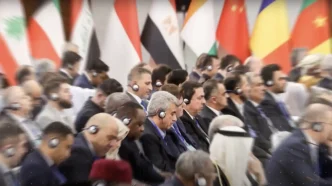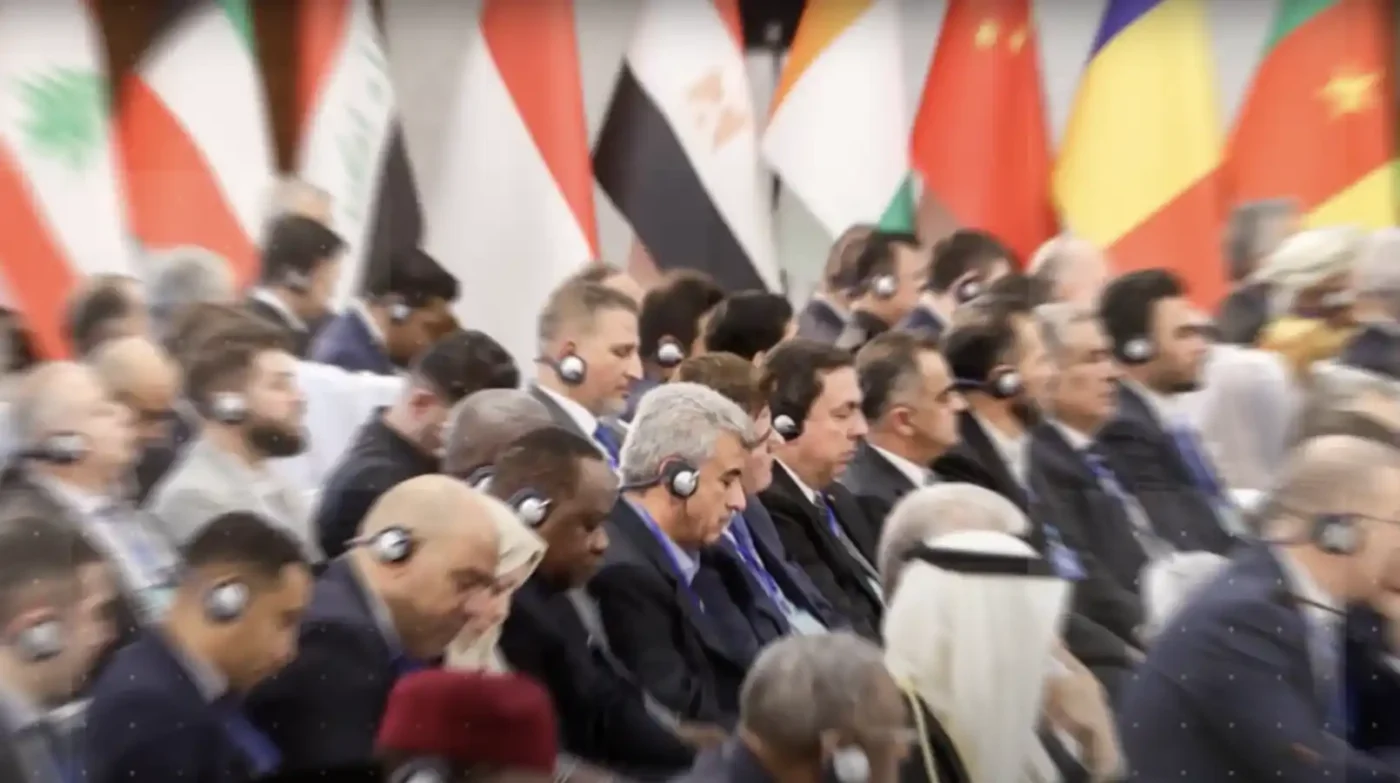Indonesia has taken center stage in the Islamic world’s parliamentary dialogue this week, hosting the 19th session of the Parliamentary Union of the Organization of Islamic Cooperation Member States (PUIC) in Jakarta. The conference, which began on Monday and runs through Thursday, has placed the ongoing war in Gaza at the forefront of discussions, with legislators from 37 OIC member countries renewing calls for Palestinian independence and condemning Israel’s actions in the region.
Urgent Calls for Action on Gaza
The opening day of the conference saw intense focus on the conflict in Gaza, where violence has escalated over the past year, drawing international concern. Mardani Ali Sera, head of Indonesia’s House of Representatives’ Inter-Parliamentary Cooperation Body (BKSAP), chaired the PUIC Palestine Committee meeting on Monday afternoon. In his opening remarks, Mardani described Israel’s actions as “systematic genocide” and urged the PUIC to become a “moral and political force” for a peaceful and just world. His comments, reported in a press release from the House, underscored Indonesia’s long-standing and fervent support for the Palestinian cause.
As a lawmaker from the Prosperous Justice Party (PKS), Mardani called for concrete steps, including parliamentary diplomacy and support for international legal processes, to hold Israel accountable for alleged war crimes. While his strong language reflects the sentiments of many OIC member states, it remains to be seen if such rhetoric will translate into unified action on the global stage. The Organization of Islamic Cooperation (OIC), which comprises 57 member states, has repeatedly condemned Israel’s aggression, but achieving broader international consensus remains a challenge.
Unity and Strategy Among Muslim-Majority Nations
The Saudi Arabian delegation echoed the need for unity, emphasizing the collective strength and potential of OIC member states. Their remarks highlighted the importance of solidarity among Muslim-majority countries, particularly in addressing crises like the one in Gaza. Beyond the immediate conflict, discussions also touched on broader themes of governance and resilience. Mardani stressed that Islamic principles of justice, trust, and accountability should underpin efforts to strengthen democracy and inter-parliamentary cooperation within the OIC framework.
“This is a strategic opportunity to strengthen a shared commitment to fighting for the aspirations of Muslims and strengthening unity for a peaceful and civilized future” Mardani said during the session. His vision of a united front aligns with the PUIC’s mission to foster collaboration among the legislatures of 54 OIC member states, though translating these ideals into actionable outcomes remains complex.
Challenges of International Consensus
While there was broad agreement among attendees on the need to support Palestinian independence, the path forward is fraught with obstacles. Muhammad Husein Fadlulloh, BKSAP deputy chair and a politician from President Prabowo Subianto’s Gerindra Party, acknowledged the shared commitment to adopting a resolution advocating for Palestine. However, he pointed out the difficulty of ensuring that such a resolution gains traction beyond the OIC’s sphere of influence.
“We were all talking about the conditions in Gaza and how we can help the Palestinian people from various aspects. But what is more important is how we unite our strategies so that the international world, including countries outside of the OIC, also supports this struggle” Husein told reporters after the meeting. His comments reflect a pragmatic understanding of the geopolitical realities at play, where resolutions from bodies like the PUIC often struggle to impact global policy without broader backing.
A Malaysian parliamentarian, speaking in a video published by the House, echoed the urgency of ending the conflict. “We should stop this war once and for all” he said, adding that verbal support must translate into tangible pressure on international bodies like the United Nations to address what many at the conference described as genocide. While such statements resonate within the conference halls, their effectiveness hinges on coordinated action and diplomatic leverage—areas where OIC member states have historically faced challenges.
High-Profile Participation and Broader Themes
The 19th PUIC conference, marking its 25th anniversary, is set to feature keynote speeches on Wednesday from prominent regional leaders, including Indonesian President Prabowo Subianto, Malaysian Prime Minister Anwar Ibrahim, and Singapore Prime Minister Lawrence Wong. Their participation underscores the event’s significance as a platform for dialogue among Muslim-majority nations and their allies. While the Gaza conflict dominates the agenda, the conference also provides an opportunity to address other pressing issues, such as governance, economic cooperation, and resilience in the face of global challenges.
Mardani’s emphasis on good governance and strong institutions as pillars of resilience highlights a broader vision for the OIC and PUIC. By rooting democratic processes in Islamic values, he argued, member states could better navigate the complexities of the modern world. This perspective aligns with Indonesia’s role as a leading voice within the OIC, often advocating for both moral and practical approaches to regional and global issues.
Indonesia’s Role in Islamic Diplomacy
Indonesia, as host of this year’s PUIC conference, continues to position itself as a key player in Islamic diplomacy. With one of the largest Muslim populations in the world, the country has consistently championed the Palestinian cause, often using international platforms to amplify its stance. The Jakarta conference builds on this legacy, providing a space for legislators to debate, strategize, and forge alliances on issues of shared concern.
The focus on Gaza comes at a time when the conflict has drawn renewed global attention, with rising civilian casualties and humanitarian crises fueling calls for intervention. While the PUIC lacks the binding authority of bodies like the UN Security Council, its resolutions and discussions can influence member states’ foreign policies and diplomatic efforts. For Indonesia, hosting the event reinforces its commitment to solidarity with Palestine while showcasing its leadership within the Islamic world.
Looking Ahead: Can Rhetoric Become Results?
As the 19th PUIC conference progresses through its sessions, the challenge remains clear: transforming impassioned rhetoric into meaningful outcomes. The unity expressed by delegates from Saudi Arabia, Malaysia, and other member states offers a foundation, but the road to international consensus on Gaza is steep. The involvement of leaders like President Prabowo and Prime Ministers Anwar and Wong may provide additional momentum, particularly if their speeches outline actionable steps for collaboration.
For now, the conference serves as a reminder of the Islamic world’s collective concern for Palestine, even as broader geopolitical dynamics complicate the path to resolution. As discussions unfold in Jakarta over the coming days, the question lingers: can the PUIC’s moral stance evolve into a political force capable of shaping global responses to the crisis in Gaza?
















